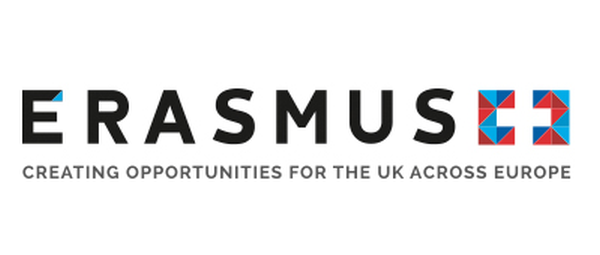
Posted on 20th July 2018
Leeds Beckett University secures £360k EU-funding to improve employability of autistic graduates
Dr Marc Fabri leads a multi-national Strategic Partnership to IMprove Autistic Graduates’ Employability (IMAGE) across Europe. The project will run from October 2018 until August 2021. This funding is made available under Erasmus+ Key Action 2, Strategic Partnerships for Higher Education.
The IMAGE project involves partners from 5 European countries: Leeds Beckett University, Free University Amsterdam, University of Helsinki, Medical School Berlin and the University of Toulouse.
Collaborators within Leeds Beckett University are researchers Dr Lisa Harkry and Dr Roz Wyatt-Willington, as well as Claire Aydogan, Head of Student and Graduate Futures and Kate Dean, Head of Disability and School Support.
Project Background
The prevalence of autism is approximately 1% of the population and autistic young people are entering HE at an increasing and unprecedented rate. These individuals are academically competent and might achieve better than their non-autistic peers.
Unfortunately, at the end of their studies a large proportion of autistic graduates is left without employment. We knew this from our previous project, Autism&Uni, where autistic students repeatedly talked about their anxiety of finding employment after their studies.
European HE systems currently fail this student group, and autistic graduates enter a fast-growing pool of untapped economic potential, preventing personal fulfilment and creating long-term costs to society.
The reasons are multifold:
- careers advice provided by HE institutions is often ineffective for autistic students;
- academic tutors lack understanding of how best to support autistic students develop employability skills or gain work experience;
- recruitment procedures create barriers;
- employers are unsure how to support autistic graduates in the job.
This is despite the many qualities that can make autistic people desirable employees, e.g. attention to detail, honesty, loyalty, working longer hours and punctuality.
Project Objectives
The IMAGE Strategic Partnership addresses this employment gap by focussing on the transition from higher education into the world of work, and the support universities can provide during this transition. The IMAGE project will benefit from the experience and networks built during Autism&Uni and offer a valuable opportunity to reduce the high levels of unemployment in the autism population. The project objectives are:
- To create an employability toolkit for autistic students so that they can develop their employability skills and better understand career goals;
- To develop new training materials for HE careers advisors so that they can better support autistic students, and provide training to 400 advisors across the partner countries;
- To share examples of good support practice with academics, HE senior managers and policy makers and thereby make HE sector more inclusive;
- To make employers better recognise the strengths and benefits of qualified autistic employees, and reduce disabling barriers to recruitment and employment.
Methodology and Outputs
The project will use a participatory design methodology, involving the target groups in the conception and design of all outputs. During the co-research and co-design activities, autistic students, careers advisors, academics and employers will participate.
The IMAGE project will produce an employability toolkit that autistic students can use independently, training materials for careers advisors to develop their skills and professional practice, and a set of good practice guides for professionals and employers to raise awareness of autism and become more autism-friendly. It is very likely that project outputs will benefit other disadvantaged student groups too, including students with other disabilities.
Impact
All outputs will be tested and evaluated during the project, and made freely available to the HE community and employers at the end of the project. The long-term impact will be greater autism awareness amongst professionals, more inclusive HE institutions and procedures, better skilled autistic graduates, and ultimately more autistic graduates in employment.



